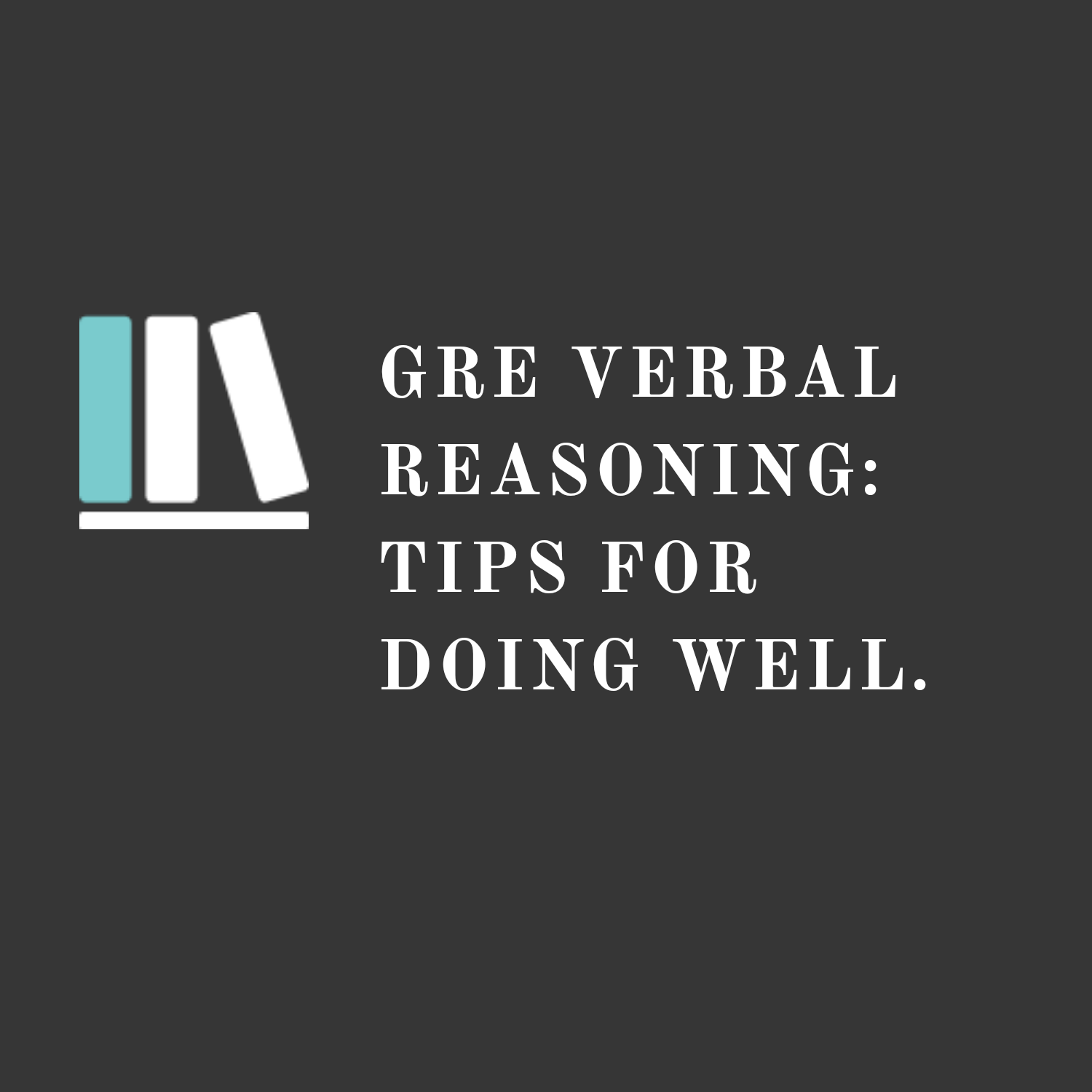GRE Verbal Reasoning: Five Tips for Doing Well
GRE Verbal Reasoning: Five Tips for Doing Well
Below are five straightforward GRE verbal reasoning tips to help boost your score to the top of the GRE score range.
-
Know your vocabulary
There is no way around it. To do well on the GRE you have to know your vocabulary. There are plenty of word lists that can help you get started.
Also, make sure to learn how to go about learning GRE vocabulary. Reading through a word list simply won’t hack it, you’ve got to have vocabulary study strategies.
-
Speak GRE-ese
The verbal section is not filled with entertaining writing. Far from it. What you’ll get is a dry, academic type of passages. The Text Completions (the fill-in-the-blank sentences) will also contain dry writing, much of which is complex and sophisticated.
To really wrap your head around such writing, you have to immerse yourself in GRE-level writing. This can be as simple as doing plenty of practice questions or reading from sites such as aldaily.com.
Of course, the speak element doesn’t mean speaking like a GRE passage—at least not at first. It does relate to using GRE-level vocabulary as much as possible. So don’t just learn the words in word lists but use them (perhaps not in public – but at least pepper your inner monologue with a GRE word or two).

-
Learn to pace
All of us have been there—not being able to let go of that difficult question, burning minutes agonizing between (B) and (C). To do well on the test you have to get a sense of pacing, so you don’t spend most of your time on just a few questions.
To develop a sense of pacing do plenty of practice sets. There are a few GRE practice tests out there that will help you get a handle on any timing issues.
-
Become a word detective
Everywhere you look, GRE words abound. Listen to some of the words characters use on television; open up your local newspaper. Of course, most of us are loath to look up words we see in writing (are you going to look up ‘loath’?). Now that you are prepping for the GRE, you need to think of yourself as a word detective. Every time you see a word you don’t know look it up.
-
Think as the test writers do
To do well on the verbal section requires more than just knowing a lot of fancy words. You have to make sure not to get trapped by the answer choices. Known as ‘distractors’, wrong answer choices are sneaky. Learn what makes wrong answer choices wrong and right answer choices right. You’ve got to think like the test-makers!
Of course, the typical reaction to missing a question is outright disbelief how, we exclaim, can (B) be the correct answer. It is clearly (C). Such a response can lead us to harbor resentment to the test. We think the questions are arbitrary and unfair. Rather, figure out in an equanimous manner why the correct answer was right, and why your original answer was wrong.
These are a few tips that might help you in your GRE Preparation. All the Best for your preparation.
Check out the Article Below :


















Leave a Reply
You must be logged in to post a comment.